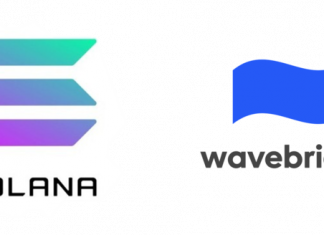
“[Financial News] Some have pointed out that it is over-regulated to impose anti-money laundering (AML) obligations on virtual asset companies that do not trade cash directly. They pointed out that it is unfair to impose AML obligations on VASPs without cash transaction because the possibility of money laundering is low if cash is not included in the process of providing virtual asset services.
■”The enforcement ordinance should be realistic about virtual asset industry”

According to the industry on the 15th, Kwon Oh-hoon, a partner lawyer at OhKims and chief of the blockchain center, said, “The VASPs reporting requirement will be very demanding, so practical consideration of virtual asset business when revising the enforcement ordinance” in the webinar for ‘After the amendment to the Specific Financial Transaction Act, what kind of preparation will the VASPs need?’.
The amendment to ‘Specific Financial Transaction Information Act’ based on AML obligation to VASP was passed by the National Assembly in March and expected to take effect in March of next year. The range of the VASPs with reporting obligations is mandated by the enforcement ordinance and the draft of enforcement obligations is expected to be released in the second half of this year. The main delegation of enforcement decree of the Specific Financial Transaction Information Act is △The range of VASP subject to AML △The range of virtual assets subject to the Specific Financial Transaction Information Act △Standards, conditions, and procedures for financial companies to open deposit and withdrawal accounts for real-name verification of VASP.
Currently, the industry analyzes that the VASP must meet the conditions such as the financial transaction through real-name verified account and information security management system (ISMS) certification and reports it to the Financial Intelligence Unit (FIU) to enable legal business.
Kwon said, “The real-name verified account is determined by the bank itself, so if the bank refuses to open the account, VASP is difficult to report to the government.” If VASPs are included in the scope of regulation and need to have a real-name verified account, VASPs that do not deal with cash are subject to over-regulation,“ he added.
He suggested ICO projects and virtual asset deposit service providers that raise funds with virtual asset like Bitcoin and Ethereum as a VASP that does not directly trade cash. He also included the stablecoin projects which have the properties of cash, and overseas remittance providers through virtual assets.
■”There must be a general law for virtual assets”
Kwon said, “So far, virtual asset exchanges were able to operate with their own institutional accounts. But if the revised Specific Financial Transaction Act takes effect, the government may freeze the institutional accounts of exchanges without real-name verified accounts.” “This is an important issue for VASPs, as the government not only freezes the bank accounts, but also sanctions such as criminal penalties against exchanges,” he added.
He urged the need for general laws and regulations for virtual assets. Then he said the Specific Financial Transaction Information Act is law that regulates only the AML field among the numerous categories related to virtual assets and does not guarantee the development of the virtual asset industry.
“The Specific Financial Transaction Information Act is not enough to construct investment products such as crypto funds, like Grayscale, a virtual asset fund company in United States,” he added. He said, “Currently, it is difficult for the crypto-related company to operate the business as the government regulates virtual asset financial products through administrative guidance.” “If the Financial Services Commission provides specific guidelines for crypto finance in the future, it will be possible to make a prospective virtual asset business,” he added.
Kim So-ra(2020.06.15) “직접 현금 거래 없는 가상자산 기업, 특금법 규제서 제외해야”
retrieved from https://www.fnnews.com/news/202006141148031570






